Food allergies are more common than we think. When you have one, you learn how to live your life with it either if it’s to a specific food or something prevalent in many foods like gluten. If that’s the case, you learn how to cook with some ingredients or to avoid certain foods that will make you feel bad. But, when you’re traveling, there are many things you can’t control! And what’s worse, sometimes you can’t even properly explain what you can’t eat or ask if the food you’re ordering is safe for you.
We’ve been there and we want you to have a better time when traveling, and not worrying about food (I mean, worry about it, but in a positive way not in an afraid one). So here’s your guide on traveling with food allergies.
Research before you go
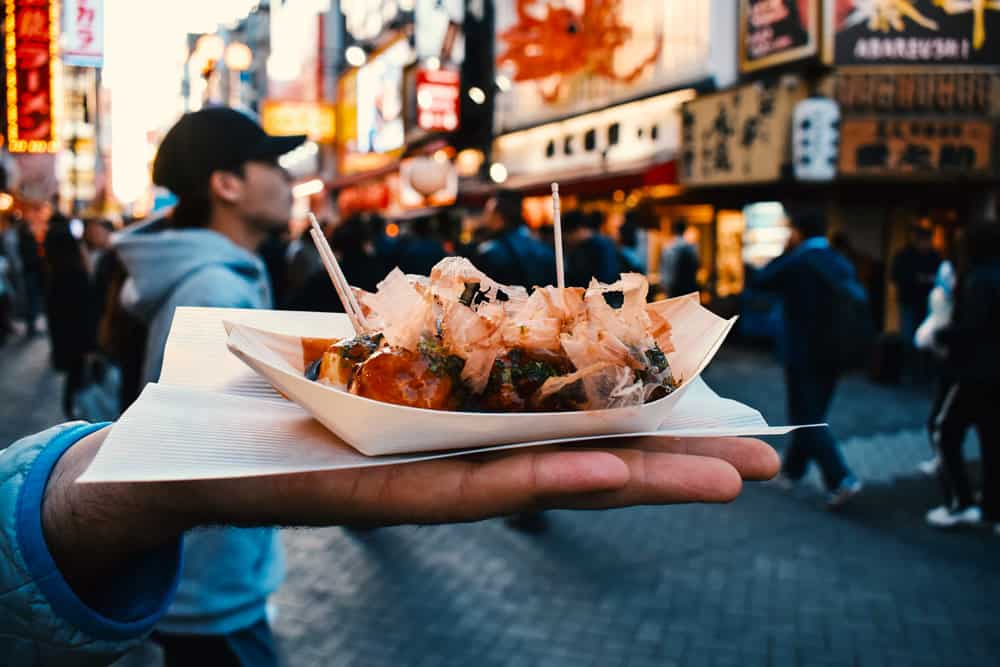
Lucky us, we already have a lot of information available about almost anything! Before going to a place, research:
- What are the dishes available
- What are the most used ingredients (even for sauces, for example)
- If there are restaurants that attend to special needs
- What foods you can try without having an allergy
- For bloggers or vloggers that have the same allergies than you
- How used to food allergies people are in a country (this is especially important in developing countries)
Of course, this can take away a bit of the adventurous feeling of just trying random things, but better be safe than sorry. Also, remember there are friendlier destinations when it comes to food. For example, if you go to any big city, you’ll probably won’t have any trouble having safe food. If you already have a city in mind, check our food and restaurants guides to know more.
Be prepared
If your allergies are really deadly, be prepared with travel insurance. You wouldn’t want to be in a situation in which you’d have to go to the hospital and you can’t afford it. If it’s a “lighter” allergy, bring medicine or know how to control it. Also, bring packaged food when possible (like camping food).
Don’t think about what you’ll miss
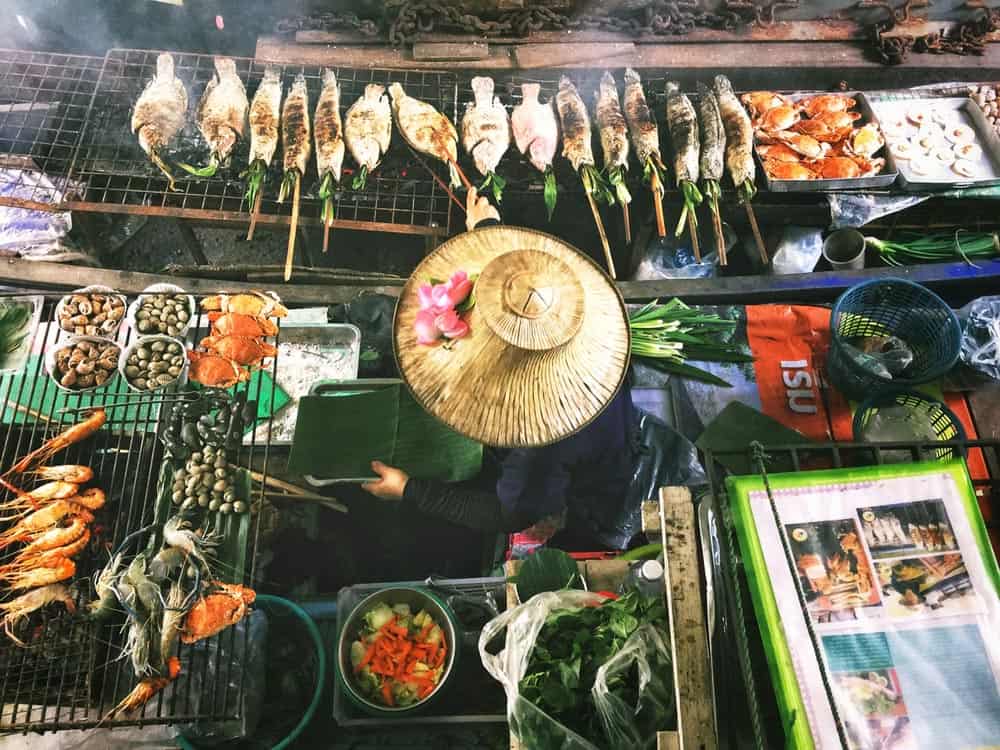
This may be a tough one, especially if you’re traveling with someone else. Try not to think about all the food you’re missing. Instead, focus on what you can actually eat and enjoy it! Also, if you’re traveling with someone else, let them know beforehand that you have special needs when it comes to food, that way, they’ll know what to expect.
Always think that is worse not going to a place than just not trying some local food.
Stay in a place that has a kitchen
It’s way easier if you can cook for yourself. You can prepare snacks or a good dinner so you can experiment with other food in the streets. When you go shopping for ingredients, look for the labels to be completely sure you’re not buying something that will make you feel bad. If you’re in a place where you can’t read labels prefer fresh, unpacked products like fruits and vegetables.
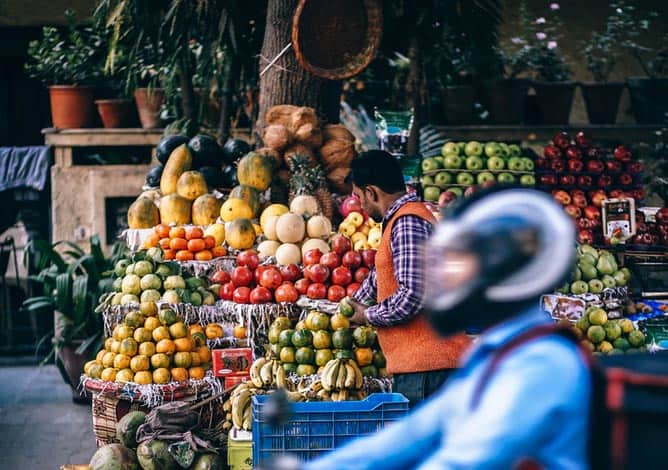
Also, if you get to a place and there’s definitely nothing you can eat, you can be prepared if you have your own food.
Asses the risk
When you have an allergy, it may get difficult to eat street food, for example. Some people are more adventurous than others when it comes to food. If you’re the adventurous type, you’ll maybe take the risk to eat something that’ll make you feel bad. This is just for the people that know their allergies pretty well, that know how much is too much and that know how to control it.
A friend that is allergic to sesame seeds once had a kebab (which he says was delicious) even if the guy told him the yogurt was made out of sesame seeds. His allergy isn’t deadly, so he just asked to put less yogurt in the kebab and had some stomach ache. But he says it was worth it. So think about that.
Ask for swaps when possible
In touristy areas, restaurants are used to cater to costumers with special needs. Even if it’s toning down spiciness in some dishes, you can surely ask for food swaps or for people to avoid using certain ingredients. For example, I’m a bit lactose intolerant when it comes to really greasy cheeses. I always ask what cheese they’ll be using and if it’s a greasy one, I ask for a swap. I haven’t encountered a place in which people are not willing to help me (yet).
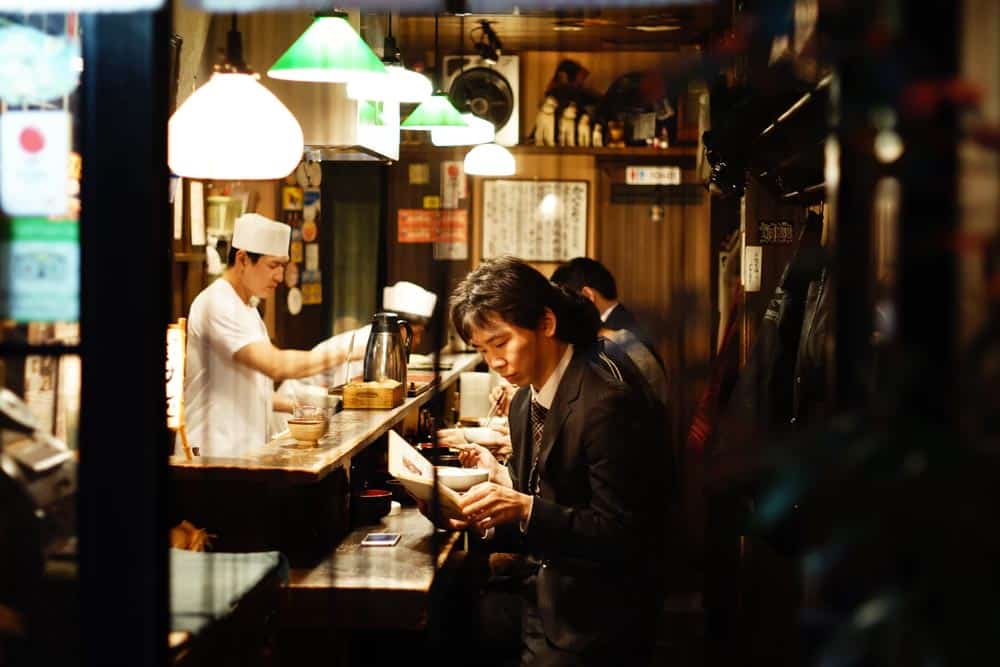
If you’re going to a place where you don’t speak the language, bring a card with your allergies listed. People will be happy to help you. Also, if you’re super allergic to something (like nuts), it may be helpful to learn that phrase in the language of the place you’re visiting. That way, people will take the allergy more seriously.
Be flexible
My best friend is a vegetarian (I know it’s not a food allergy, but bear with me please), he’s been one for the past 10 years. So whenever we go out eating, we need to think of options where he can eat. But that’s not always possible when we’re traveling together. During the last trip we made, it was really difficult to find vegetarian-friendly places for him so we had to get creative. Since the restaurant we were eating in was super inflexible, we had to swap some ingredients from his dish to mine and vice-versa. In the end, he could eat something and it was not a problem.
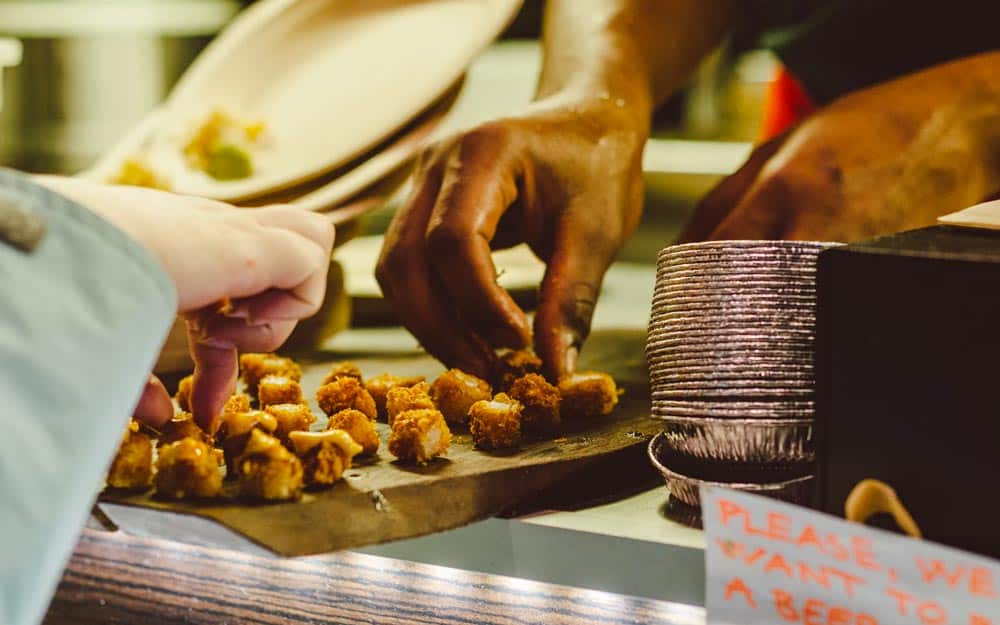
Be prepared for situations like that in which it won’t be possible to get anything for you. Don’t feel embarrassed or angry, if you’re traveling with someone else, ask for their help. In my case, I was happy to help my friend by giving him my avocado.
It’ll take time
Of course, if you’re new to your food allergy or traveling, it’ll take time for you to get used to being careful about your food adventures. Accept it. Nobody was born knowing how to navigate life (or food allergies!). The more you travel and the more you know, it’ll get easier!
What other tips would you recommend to a person traveling with food allergies?




